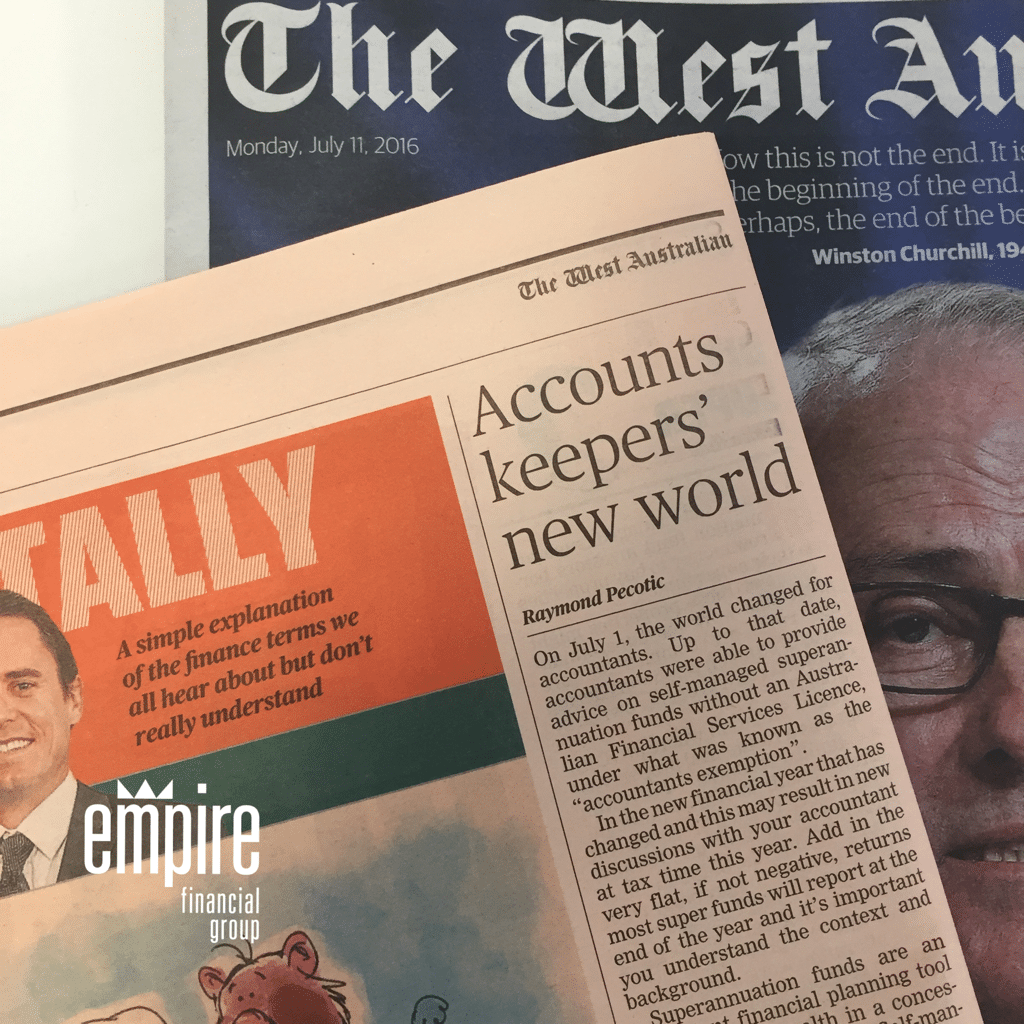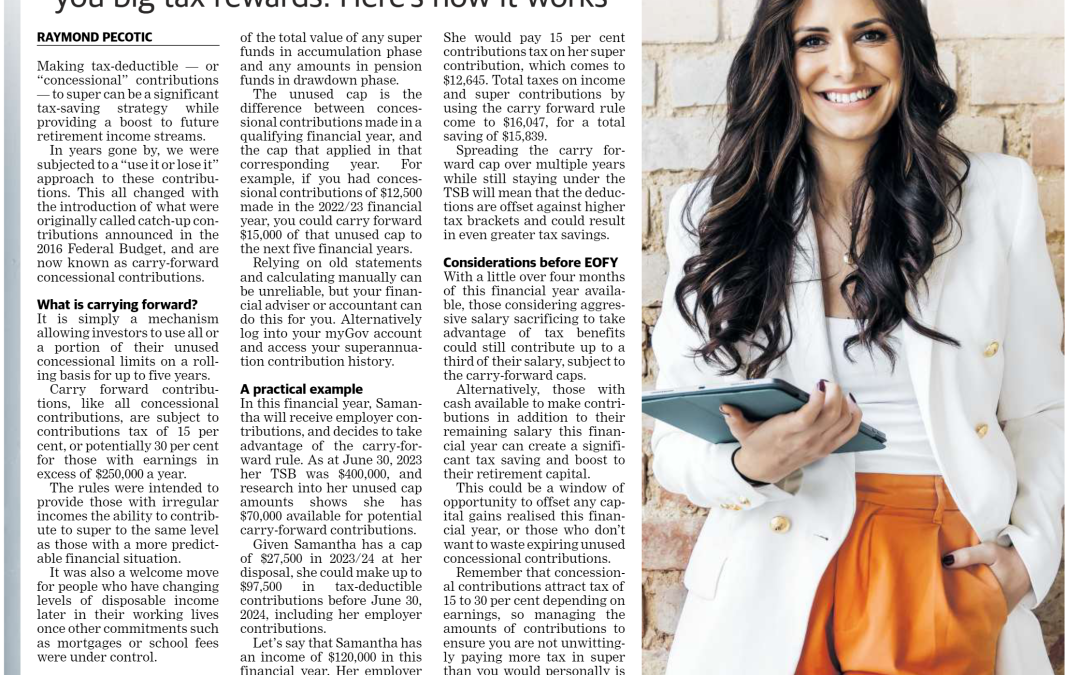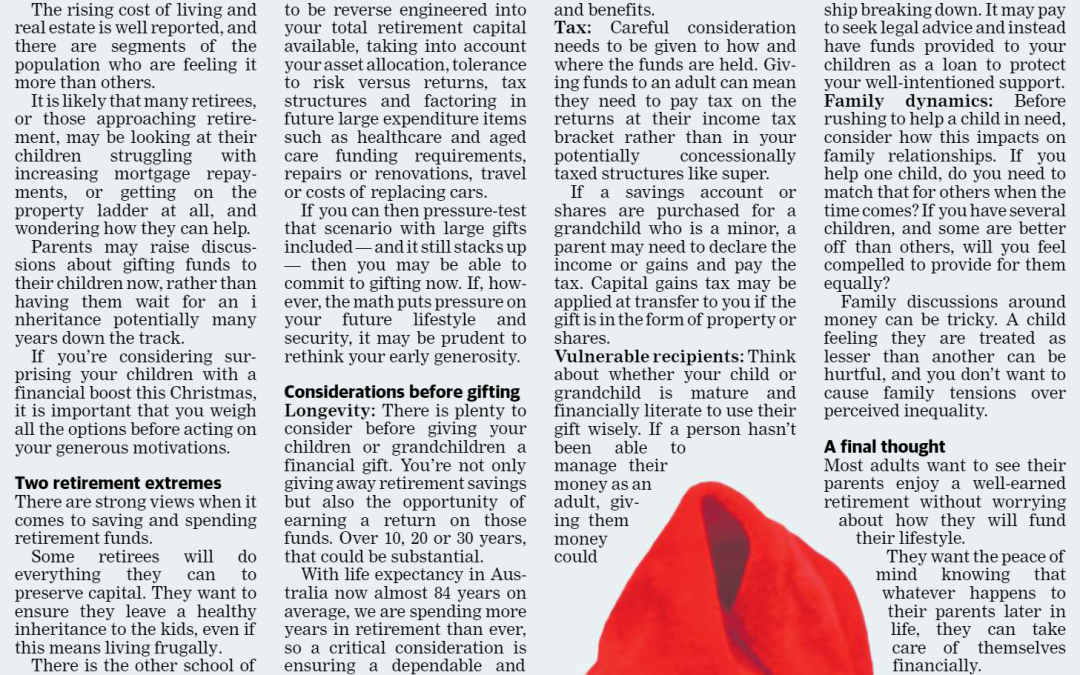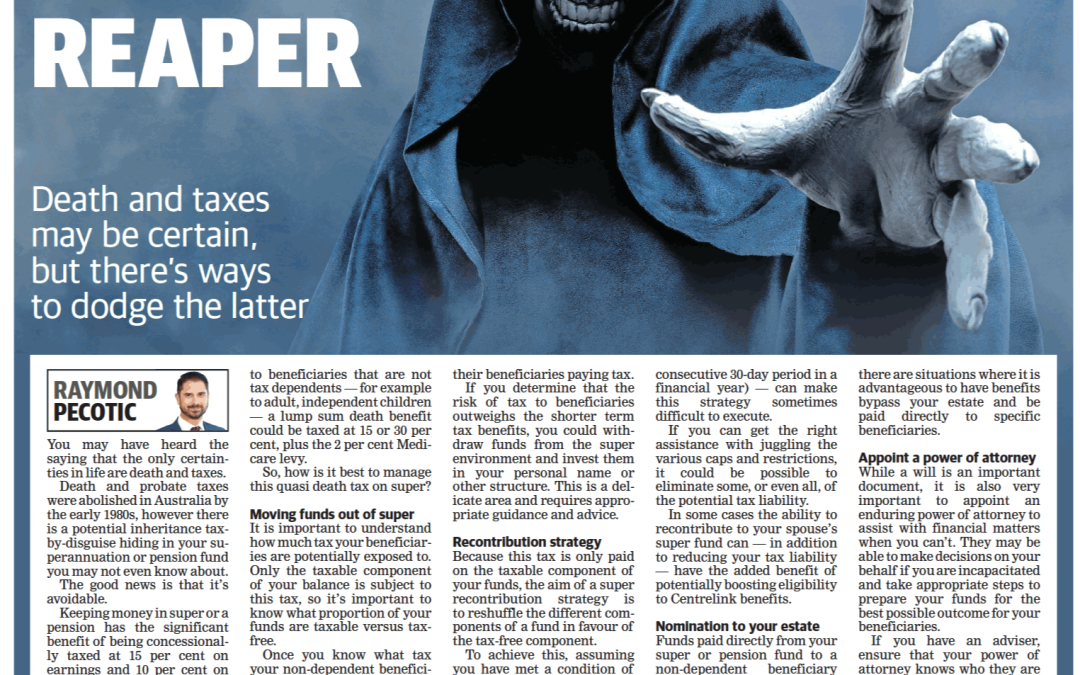Article by Raymond Pecotic of Empire Financial Group.
Published in the West Australian on Monday 11 July 2016.
Accounts keepers’ new world
On 1 July 2016, the world changed for accountants.
Up to that date, accountants were able to provide advice on Self Managed Superannuation Funds without an Australian Financial Services Licence (AFSL), under what was known as the Accountants Exemption. In the new financial year all that will change and this may result in some new discussions with your accountant at tax time this year. Add in the very flat, if not negative returns, most super funds will report at the end of the year, and it’s important you understand the context and background if that eventuates.
Superannuation funds are an important financial planning tool used to build long term wealth in a concessional tax environment. Self Managed Superannuation Funds (SMSF) are often an appropriate vehicle for some investors, looking for greater flexibility with their investments.
In years when super funds have returned poor yields to investors, many have considered SMSF’s as a very viable alternative, and indeed there has historically been a spike in SMSF establishments after negative market returns. This year may well be one of those years.
But there is another factor that could drive the push towards SMSF’s, and it may be just as inappropriate as basing your decision on one poor year’s returns.
Accountants have been well equipped to give sound advice on how to set up an SMSF, how much you can contribute, how to start drawing an income stream, and often they are particularly well placed to offer guidance around more complex matters such as transfers of land or buildings, or rollovers of business sale proceeds to reduce Capital Gains Tax.
And, they’ve been able to go about that business without the compliance and regulatory requirements financial planners contend with. The exemption from that was meant to be temporary, to allow accountants to prepare accordingly. While many thought it would never eventuate, the wolves have arrived at the door.
Most accountants that work in the SMSF space have now gone on to complete the required extra financial planning qualifications. And as of 1 July, they needed to either get their own AFSL, or become an authorised representative of someone else’s.
This all comes at a price. In addition to the expense of added qualifications, many AFSL holders will propose to charge accountants tens of thousands of dollars per annum to simply be able to continue doing what they’ve done for years at no extra cost. For most small businesses this is a significant blow to their budget. This is understandably frustrating and concerning, and many will be now looking for ways to recover this extra cost to their business by focussing on the promotion of SMSF services. Indeed, some AFSL holders are offering discounted fees to accountants to be subsidised by referrals to their planning network.
A flat or negative investment reporting season may lead to the perfect storm of disgruntled investors matched with a focus on cost recovery, resulting in discussions about “upgrading” to an SMSF.
And it may be entirely appropriate to do so. However, knowing the commercial realities at play, it may be worth digging a bit deeper with your questions or getting a second opinion.



